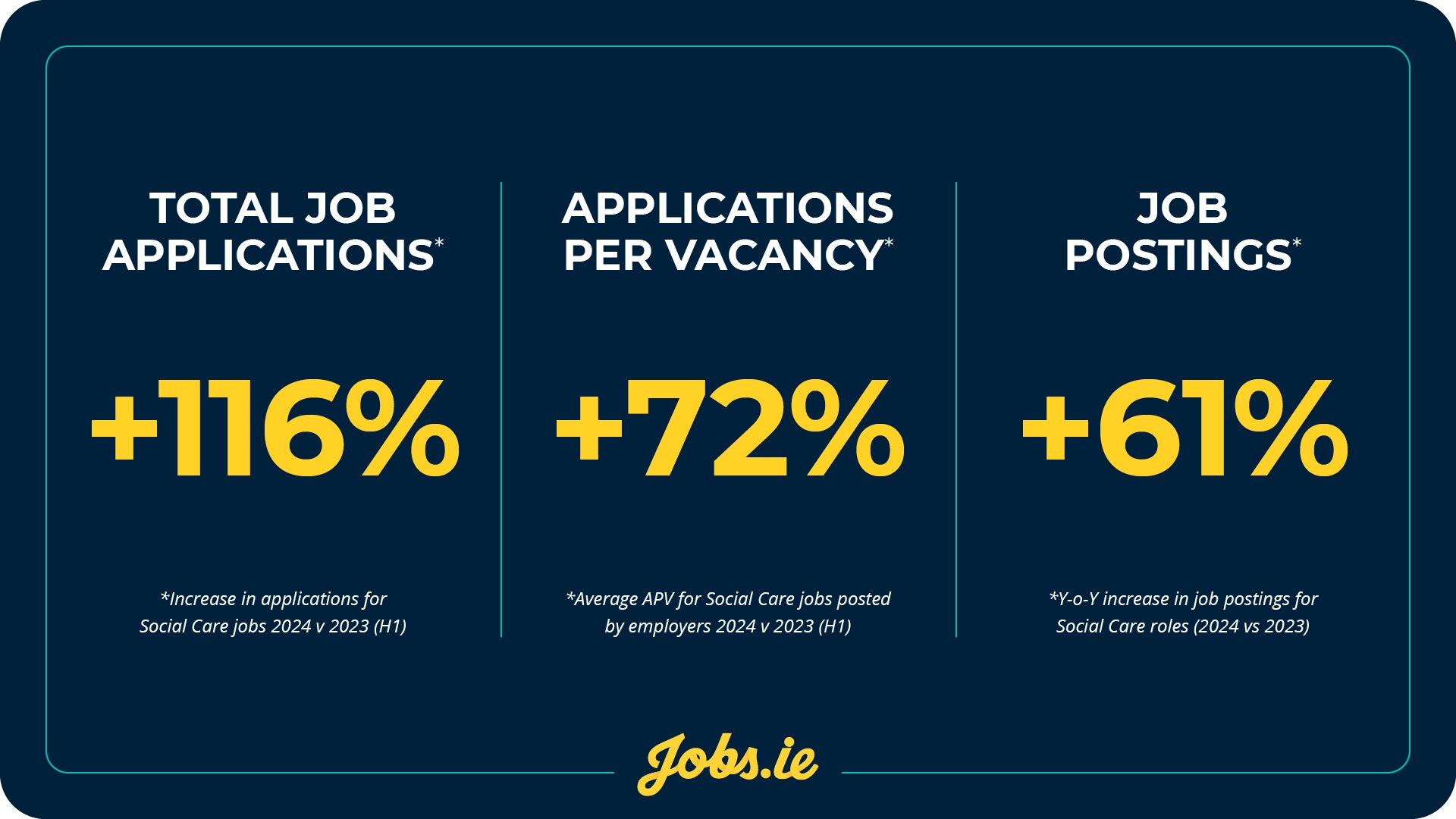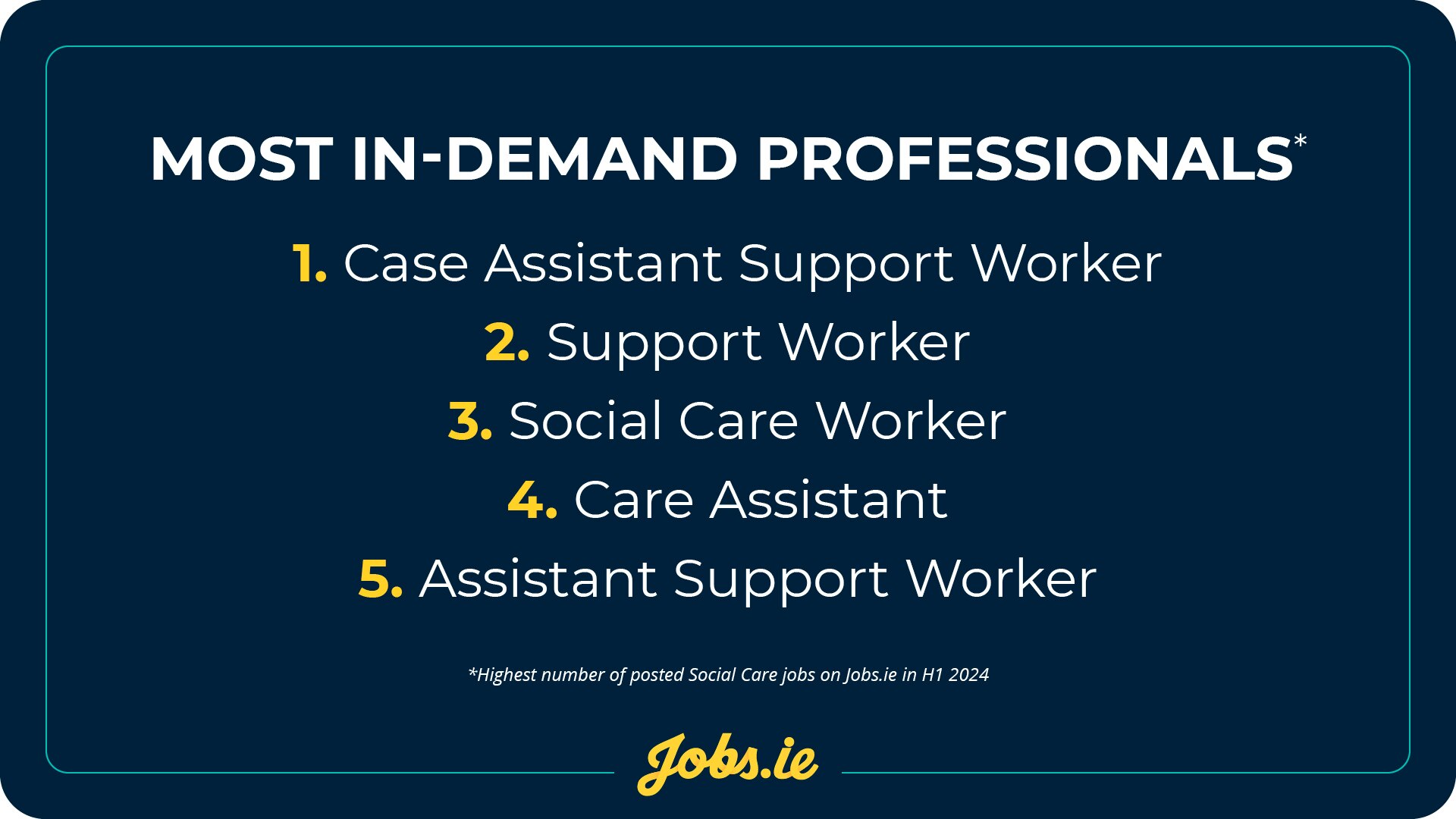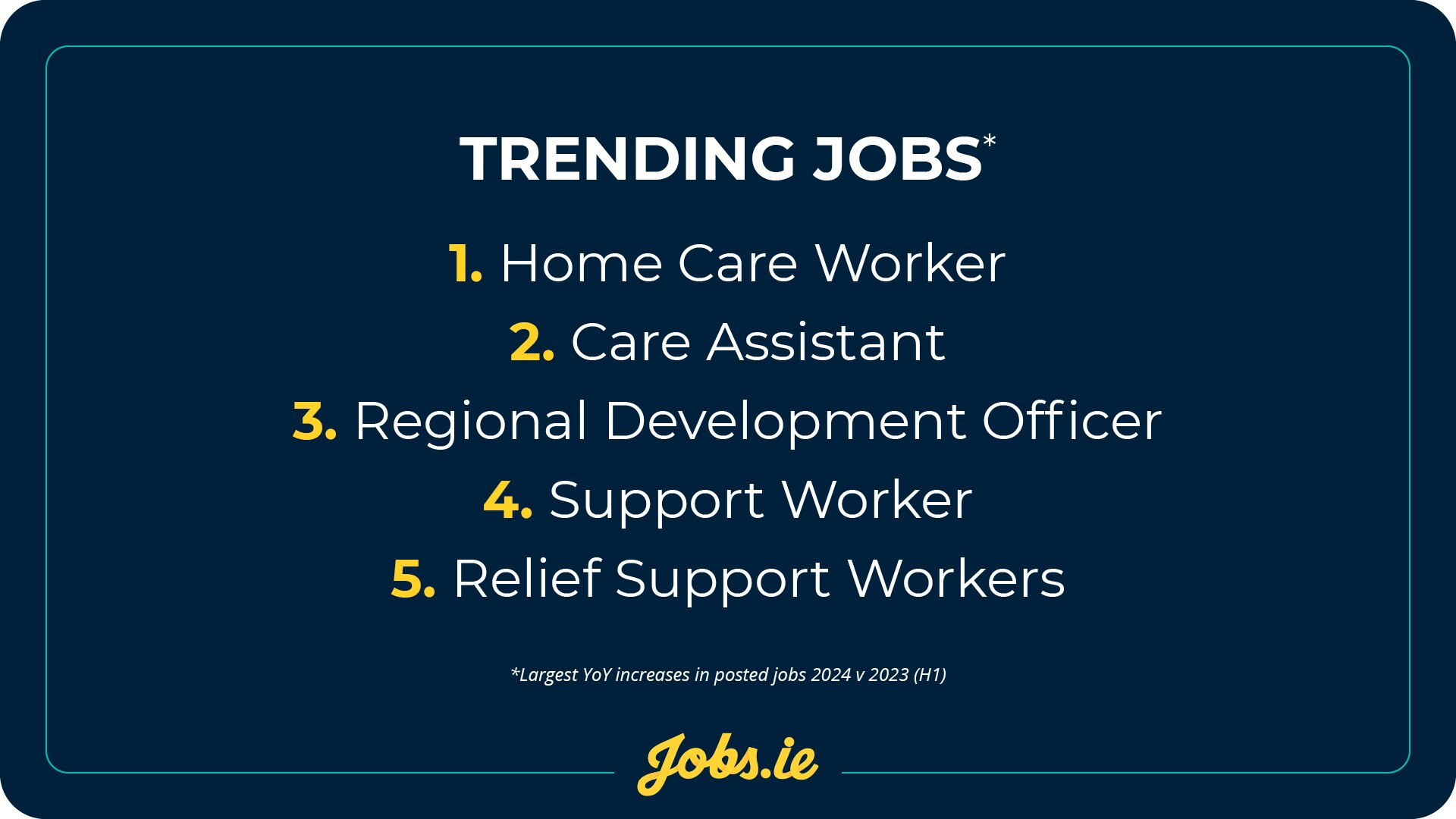Ireland’s demand for social care workers has been steadily rising, driven by an aging population, increasing mental health needs, and a growing emphasis on inclusive support for vulnerable groups.
Recruitment Insights
Employers in the social care sector hire for a diverse range of positions, including residential care workers, community support professionals, and mental health specialists. Each role requires specific skills, from empathy and communication to adaptability and knowledge of new technologies.
With social care now a crucial pillar in the health and welfare systems, addressing workforce shortages, enhancing training, offering clear career paths, and providing competitive employment packages are essential to meeting the nation’s growing social support needs. The evolving landscape of social care in Ireland requires employers to stay abreast of hiring trends in the sector and develop responsive recruitment strategies to ensure they attract and retain key talent.
Hiring Activity
Hiring activity for jobs in social care has been brisk, with applications on Jobs.ie up 116% for H1 2024 compared to the same six months in 2023. Recruiters in the sector have also experienced an increase in APV, up 72% year-on-year over the same time scale. As a whole, demand for social care professionals is on the up, with the volume of job postings in the sector rising by 61% year-on-year in Q3 2024.
The job vacancy rate is another important indicator, providing insights into the dynamics of the labour market. It allows various stakeholders, from government and policymakers to businesses and jobseekers, to make better-informed decisions. Falling back from high vacancy rates during the post-pandemic hiring surge, the current vacancy rate is 1.1 for Q2 2024 and has remained at this steady rate all year, a rate last recorded in late 2019. This suggests a return to a more balanced and settled labour market.
Social Care roles, which fall under Human, Health, and Social Work in the CSO industry categorisation, currently have a job vacancy rate of 0.9 as of Q2 2024. This is the first time the job vacancy rate has been at that level in two years, reflecting the vigorous recruitment activity within the sector.

Talent Attraction & Recruitment Considerations
The success of any organisation is dependent on the quality of talent it attracts and recruits. Therefore, it is essential to carefully consider the strategies and tactics employed when trying to attract and recruit top talent.
Here are five considerations for recruiters in the social care sector:
Candidate experience: From the moment a job posting goes live to the final offer, demonstrating a genuine commitment to professional development and support for staff is key. This includes showcasing opportunities for skill enhancement, ongoing training programmes, and a work environment that prioritises excellence and career advancement. By emphasising these elements, recruiters can effectively convey the value and potential of joining their organisation.
Employer brand: Focus on highlighting what sets your company apart, such as your commitment to compassionate care, supportive work environment, and opportunities for professional growth. Once you’ve identified these key attributes, use various channels to craft and share a compelling narrative about why candidates should choose your organisation over others. By showcasing your dedication to both the well-being of those in your care and the professional development of your staff, you can attract top talent who are passionate about making a difference.
Training and skills development: In the social care industry, mastering core skills such as effective communication, empathy, and hands-on care techniques is crucial. Continuous professional development in care protocols, regulatory requirements, and interpersonal skills helps jobseekers stay competitive and well-prepared for opportunities.
Competitive benefits: Providing competitive benefits like health insurance, paid leave, and retirement plans is essential in the social care industry. These benefits enhance employees’ overall well-being and job satisfaction, making your organisation more appealing to potential candidates. By offering a robust benefits package, you can attract and retain skilled and dedicated professionals committed to delivering high-quality care.
Employee retention: In the social care industry, high retention rates signal a positive work environment where staff feel valued and engaged. This starts with supportive management that communicates openly and actively listens to feedback. By encouraging a nurturing and stable workplace, employers not only enhance their reputation but also attract and retain top talent, creating a cycle of positive referrals and ongoing recruitment processes.




